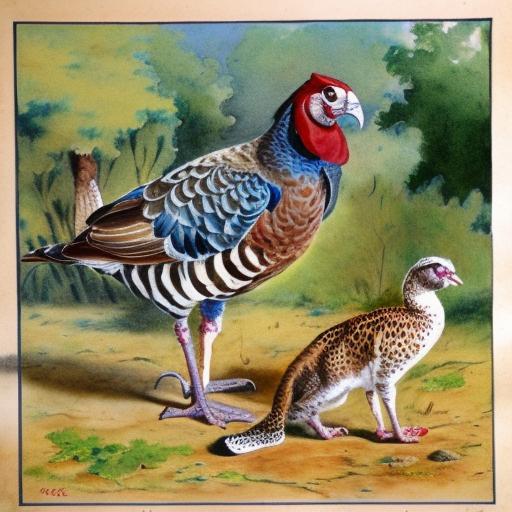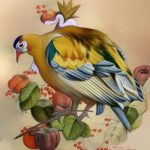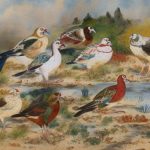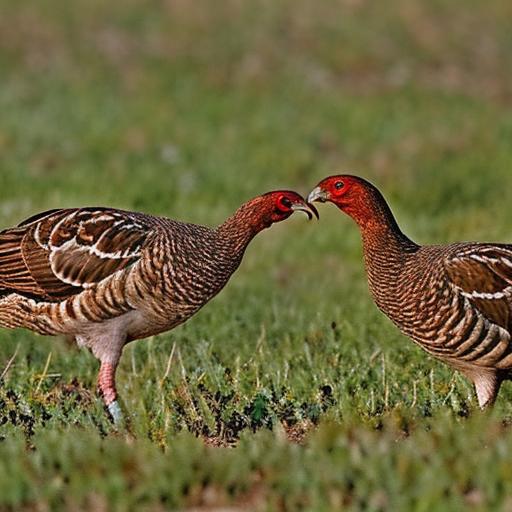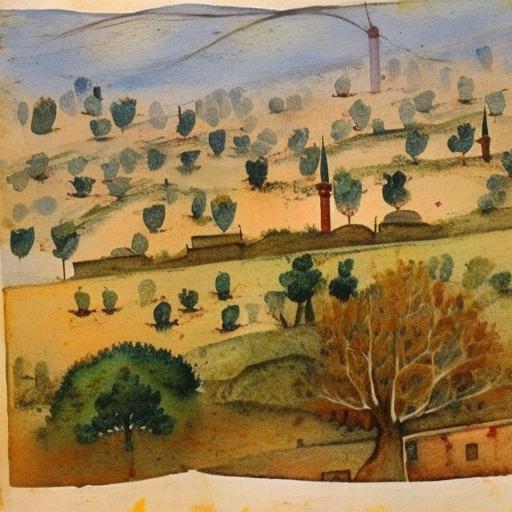Turkey breeds come in a variety of shapes, sizes, and colors, each with its own unique characteristics and traits. From heritage breeds that have been around for centuries to commercial breeds developed for mass production, there is a turkey breed to suit every need. Whether you are looking for a turkey for meat production, egg-laying, or simply as a backyard pet, understanding the different breeds and their specific qualities is essential for making the right choice. In this article, we will explore the diverse world of turkey breeds, from heritage and wild breeds to rare and endangered varieties, as well as the more common commercial breeds.
Key Takeaways
- There are several different breeds of turkeys, each with unique characteristics and traits.
- Heritage breeds of turkeys are traditional breeds that have been around for centuries and are known for their hardiness and flavor.
- Broad breasted breeds of turkeys are popular in commercial production due to their fast growth and large breast size.
- Wild turkey breeds are the ancestors of domesticated turkeys and are known for their agility and ability to forage for food.
- Rare and endangered turkey breeds are at risk of extinction and efforts are being made to preserve and protect these unique breeds.
- Commercial turkey breeds are specifically bred for mass production and are often chosen for their fast growth and high meat yield.
- When selecting a turkey breed, it’s important to consider your specific needs and goals, such as meat production, egg production, or conservation efforts.
Heritage Breeds of Turkey
Heritage turkey breeds are those that have been around for centuries and are often prized for their unique flavor, appearance, and ability to thrive in free-range environments. Some popular heritage breeds include the Bourbon Red, Narragansett, and Standard Bronze. These breeds are known for their rich, flavorful meat and ability to forage for their own food, making them ideal for small-scale, sustainable farming operations. They also come in a variety of colors and patterns, adding to their appeal as ornamental birds. Heritage breeds are often slower-growing than commercial breeds, taking longer to reach market weight, but their superior flavor and ability to thrive in natural environments make them a popular choice for those seeking a more traditional turkey experience.
On the other hand, heritage breeds are also known for their ability to reproduce naturally, making them a popular choice for those looking to raise turkeys for breeding purposes. Their ability to mate naturally and raise their own young makes them a valuable asset for those interested in preserving rare and endangered turkey breeds. Overall, heritage turkey breeds offer a unique combination of flavor, appearance, and sustainability that makes them a popular choice for small-scale farmers and homesteaders.
Broad Breasted Breeds of Turkey
Broad breasted turkey breeds are the most common type of turkey found in commercial production today. These breeds have been selectively bred for their large size and fast growth rate, making them ideal for mass production and the modern meat market. Some popular broad breasted breeds include the Broad Breasted White and Broad Breasted Bronze. These turkeys are known for their rapid growth and high meat yield, making them the preferred choice for commercial turkey farming operations.
However, broad breasted turkeys are not without their drawbacks. Their rapid growth can lead to health issues such as leg problems and heart disease, and they are not well-suited to free-range environments due to their large size and limited ability to forage for food. Additionally, their breeding capabilities have been compromised through selective breeding, making them reliant on artificial insemination for reproduction. Despite these challenges, broad breasted turkeys remain the most popular choice for meat production due to their high meat yield and fast growth rate.
Wild Turkey Breeds
Wild turkey breeds are the ancestors of the domesticated turkeys we know today and can still be found in the wild in certain parts of North America. These birds are known for their agility, speed, and ability to thrive in natural environments. Some popular wild turkey breeds include the Eastern Wild Turkey, Osceola Wild Turkey, and Rio Grande Wild Turkey. These birds are prized by hunters for their elusive nature and challenging behavior, making them a popular game bird in many parts of the United States.
Wild turkey breeds are also known for their ability to adapt to a variety of habitats, from forests and grasslands to swamps and marshes. They are skilled foragers and can find food in a wide range of environments, making them well-suited to survival in the wild. While wild turkey breeds are not typically raised for meat production, they offer valuable genetic diversity that can be used to improve the health and resilience of domesticated turkey breeds. Overall, wild turkey breeds play an important role in maintaining genetic diversity and preserving the natural behaviors and traits of turkeys.
Rare and Endangered Turkey Breeds
Rare and endangered turkey breeds are those that are at risk of extinction due to declining population numbers and limited genetic diversity. These breeds often have unique traits and characteristics that make them valuable for conservation efforts. Some rare and endangered turkey breeds include the Royal Palm, Midget White, and Jersey Buff. These breeds are known for their distinctive appearance, small size, and ability to thrive in free-range environments.
Conservation efforts for rare and endangered turkey breeds often focus on preserving genetic diversity through breeding programs and promoting public awareness of these unique birds. By raising awareness of the value of rare and endangered turkey breeds, conservationists hope to encourage more people to raise these birds and help prevent their extinction. Additionally, efforts to promote sustainable farming practices and support small-scale farmers can help ensure the survival of these valuable breeds.
Commercial Turkey Breeds

Commercial turkey breeds are those that have been developed specifically for mass production in the modern meat market. These breeds are typically selected for their large size, fast growth rate, and high meat yield. Some popular commercial turkey breeds include the Hybrid Converter and Hybrid Converter Plus. These birds are known for their rapid growth and efficient feed conversion, making them the preferred choice for large-scale commercial turkey farming operations.
Commercial turkey breeds are typically raised in controlled environments such as barns or poultry houses, where they can be closely monitored and managed to maximize meat production. They are often fed a specialized diet designed to promote rapid growth and efficient meat yield. While commercial turkey breeds have been successful in meeting the demand for affordable meat products, they also face challenges such as health issues related to rapid growth and limited genetic diversity due to selective breeding.
Selecting the Right Breed for Your Needs
When choosing a turkey breed, it is important to consider your specific needs and goals. If you are looking for a traditional turkey with superior flavor and sustainability, heritage breeds may be the best choice for you. On the other hand, if you are interested in raising turkeys for meat production on a larger scale, commercial breeds may be more suitable. It is also important to consider factors such as space requirements, feed efficiency, and health considerations when selecting a breed.
Additionally, it is important to consider the long-term implications of your choice of breed. By supporting rare and endangered turkey breeds or choosing heritage breeds with natural breeding capabilities, you can help preserve genetic diversity and promote sustainable farming practices. Ultimately, the right breed for you will depend on your specific goals and values as a farmer or homesteader.
In conclusion, turkey breeds offer a diverse range of options for farmers and homesteaders seeking to raise these unique birds. From heritage breeds with superior flavor and sustainability to commercial breeds developed for mass production, there is a turkey breed to suit every need. By understanding the different characteristics and traits of each breed, you can make an informed decision that aligns with your goals as a farmer or homesteader. Whether you are interested in preserving rare and endangered turkey breeds or raising turkeys for meat production on a larger scale, there is a breed out there that is right for you.
If you’re interested in learning more about turkey breeds, you might also want to check out an article on the best chicken coops for your backyard flock. The article discusses different types of chicken coops, including the Producers Pride Sentinel Chicken Coop, the SnapLock Chicken Coop, and the Garden Chicken Coop. You can find more information about these coops and how they can benefit your poultry on PoultryWizard.com. Check it out here!
FAQs
What are the different breeds of turkey?
There are several different breeds of turkey, including the Broad Breasted White, Broad Breasted Bronze, Bourbon Red, Narragansett, and Royal Palm.
What are the characteristics of the Broad Breasted White turkey?
The Broad Breasted White turkey is known for its broad breast and white feathers. It is the most common breed raised for commercial turkey production.
What are the characteristics of the Broad Breasted Bronze turkey?
The Broad Breasted Bronze turkey is similar to the Broad Breasted White in terms of size and shape, but it has bronze-colored feathers.
What are the characteristics of the Bourbon Red turkey?
The Bourbon Red turkey has a rich, chestnut-red plumage with white markings. It is known for its excellent meat quality and is also raised for exhibition purposes.
What are the characteristics of the Narragansett turkey?
The Narragansett turkey has a black, gray, and white patterned plumage. It is a heritage breed known for its excellent foraging abilities and flavorful meat.
What are the characteristics of the Royal Palm turkey?
The Royal Palm turkey is a smaller breed with striking black and white plumage. It is primarily raised for exhibition and ornamental purposes.
Meet Walter, the feathered-friend fanatic of Florida! Nestled in the sunshine state, Walter struts through life with his feathered companions, clucking his way to happiness. With a coop that’s fancier than a five-star hotel, he’s the Don Juan of the chicken world. When he’s not teaching his hens to do the cha-cha, you’ll find him in a heated debate with his prized rooster, Sir Clucks-a-Lot. Walter’s poultry passion is no yolk; he’s the sunny-side-up guy you never knew you needed in your flock of friends!

